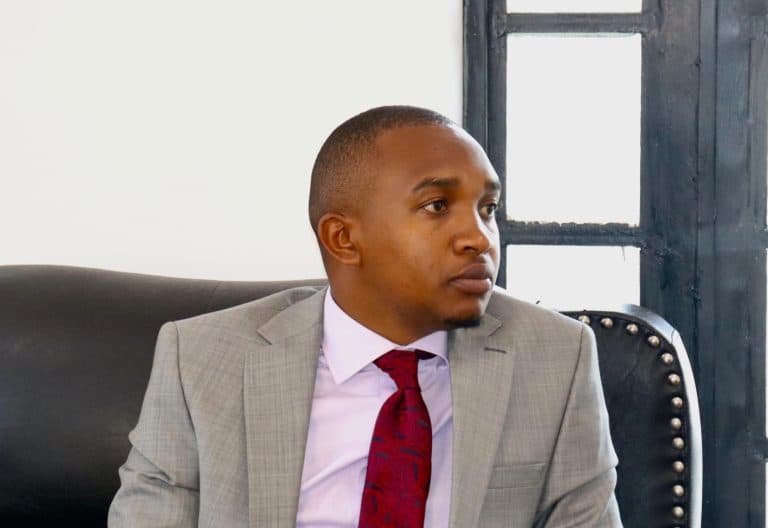We're loading the full news article for you. This includes the article content, images, author information, and related articles.
Activist Morara Kebaso dismisses established opposition, arguing only a new, unified youth front can challenge the incumbent in the upcoming general election, a move that taps into recent waves of youth-led civic action.

NAIROBI – Political activist Morara Kebaso has asserted that President William Ruto can be defeated in the 2027 general election, but not by the current configuration of opposition leaders. In a detailed social media post on Sunday, 16 November 2025, Kebaso argued that a genuine challenge to the incumbent can only be mounted by a “combined youth force” that bypasses existing political structures. “William Ruto can only be defeated by a combined youth force,” Kebaso stated, dismissing the efforts of the “so-called united opposition” as political posturing.
Kebaso, who has become a prominent voice in youth civic education after a brief and tumultuous entry into formal politics, suggested that established politicians are more interested in securing negotiating power for themselves after the election than in fundamentally challenging the status quo. “The rest of the politicians are just hoping to strengthen their parties to get enough members of parliament to use for negotiations after the election,” he wrote. This sentiment reflects a growing disillusionment among a segment of the Kenyan electorate, particularly younger voters, who feel that mainstream politics does not address their primary concerns of unemployment, economic hardship, and corruption.
Kebaso's call to action taps into the significant, though often unrealized, potential of Kenya's youth demographic. According to government statistics, nearly 75% of the Kenyan population is under the age of 35, making them the largest voting bloc. However, this demographic has historically been plagued by low voter turnout, internal divisions, and manipulation by the political elite. The activist’s proposal for a new, youth-owned political formation is an attempt to overcome these hurdles. “Unless key figures in the youth space decide to come together and offer leadership to the leaderless and a party to the partyless, we can continue watching helplessly,” Kebaso warned, adding that without such unity, “Ruto will win and no one in the opposition will lose anything.”
This perspective is amplified by the recent memory of the Gen Z-led protests in June 2024, which demonstrated the youth's capacity for rapid, decentralized mobilization against government policy, largely organized outside of traditional political party structures. Analysts note that while the protests showcased a powerful new wave of civic engagement, the challenge remains in translating that street-level energy into a cohesive and sustainable political movement capable of contesting a national election. Obstacles such as campaign financing, navigating entrenched ethnic voting patterns, and building national structures from the ground up are significant.
The activist's comments land in a political environment already simmering with early 2027 realignments. President Ruto's administration continues to face public pressure over the high cost of living and taxation policies. Simultaneously, various opposition figures are attempting to form a united front to challenge the Kenya Kwanza government. However, these efforts are viewed with skepticism by critics like Kebaso, who argue that they represent a recycling of the political class rather than a genuine alternative. In a previous statement, Kebaso had been even more direct, stating, “The danger of tribal politics is that it’s controlled by kingpins and money. No one can beat Ruto in the game of buying kingpins of tribes.”
Kebaso himself is a case study in the difficulties facing new entrants. After gaining prominence for his satirical critiques of the government, he founded the INJECT party and briefly declared a presidential bid for 2027 before officially quitting politics in June 2025, citing intense online harassment and public pressure. His subsequent return to the fore as a civic educator rather than a candidate adds a layer of complexity to his call for others to take up the mantle. His message is a direct challenge to a generation that has shown its power to protest but has yet to fully harness its electoral strength. As the country moves closer to the next election cycle, the viability of a “third force” driven by young, politically unaligned Kenyans will be a critical storyline to watch.
Keep the conversation in one place—threads here stay linked to the story and in the forums.
Sign in to start a discussion
Start a conversation about this story and keep it linked here.
Other hot threads
E-sports and Gaming Community in Kenya
Active 9 months ago
The Role of Technology in Modern Agriculture (AgriTech)
Active 9 months ago
Popular Recreational Activities Across Counties
Active 9 months ago
Investing in Youth Sports Development Programs
Active 9 months ago